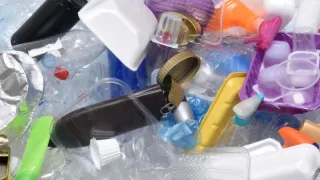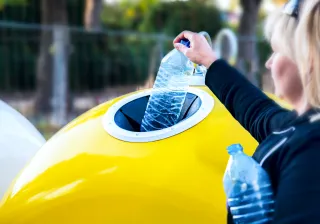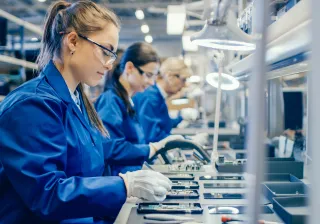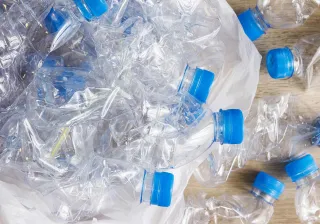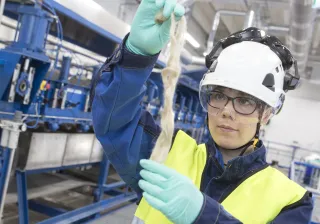The recycling rate of plastic waste is today far too low. Mechanical recycling alone will hardly meet the plastics recycling targets set in EU and national legislation. Industrially feasible chemical recycling processes capable to utilize mixed plastic waste are needed to divert plastics away from waste incineration and the environment causing carbon dioxide emissions and littering. UrbanMill co-innovation project is developing enabling technologies to utilise highly mixed plastic waste as feedstock for chemical recycling producing high quality plastic materials complementing current recycled plastics.
Even though plastics have many sustainable advantages as material, the lacking proper waste handling and recycling of plastics cause huge environmental challenges by littering and CO2 emissions. Today in Finland the recycling rate of packaging plastics is about 30% as the new waste law sets target of 55% by 2030. Thus, there is an enormous need to increase the share of the plastic waste that can be industrially recycled back to new high quality plastic materials.
Plastics can be recycled mechanically and chemically and both are needed to meet the recycling targets. Mechanical recycling from the mixed plastic waste leads often to compromised plastic properties and thus recycled plastics cannot be used in many demanding applications, such as food packaging. In chemical recycling, plastics are broken down into starting materials, from which high-quality plastics similar to virgin plastics are made. Plastic waste used for chemical recycling can also be more mixed in quality than the raw material for mechanical recycling.
“Chemical recycling based on pyrolysis is on the verge of an industrial giant leap as new investments to demonstration and production units are frequently announced. However, many of these early demo units are still using relatively pure plastic waste fractions leaving a large share of plastic waste incinerated. UrbanMill project aims to develop enabling recycling technologies for difficult-to-recycle highly mixed plastic waste,” says Mika Härkönen, Professor of Practice at VTT.
The two-year project of 3 M€ is funded by Business Finland and coordinated by VTT Technical Research Centre of Finland in cooperation with Aalto University. It spans multiple industrial sectors in the plastic recycling value chain and creates strong networks and collaborations between the consortium partners. The UrbanMill is focused to create novel concepts by combining tailored pre- and post-treatment technologies with pyrolysis. The project is closely linked to Borealis SPIRIT and Valmet Beyond Circularity “Veturi” ecosystems. The other participating companies are Corex Finland, Wipak, Kaipola Recycling, Keskinen Recycling, Lamor, PR Pulping, Resiclo, Salpakierto, Sulapac and Suomen Uusiomuovi.
“The UrbanMill project develops a sustainable industrial chemical recycling concept for plastic waste which cannot be mechanically recycled. It supports the Borealis SPIRIT program targets by increasing the plastic recycling rate, providing recycled feedstock for plastic production and aiming at high quality recycled plastic. The cooperation possibilities within the consortium look very promising,” says Jaakko Tuomainen, Manager of circular plastics in Borealis SPIRIT programme.
“New technology solutions are needed to solve the huge plastic recycling problem and to reach the set EU targets. The UrbanMill project aims to develop process concepts to enable better plastic recycling with pre-treatment, pyrolysis and post-treatment. These new solutions are needed in the industry to move forward to a circular economy for plastics,” says Antti Raiko, Project manager of plastic chemical recycling in Valmet Beyond Circularity program.


